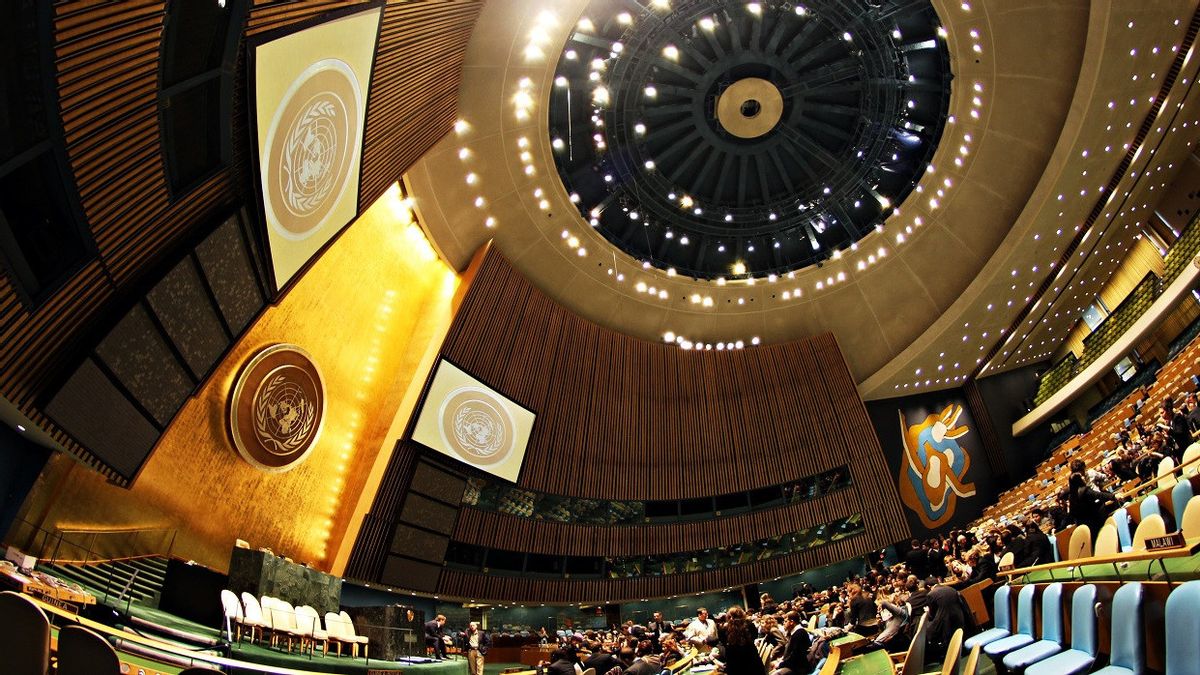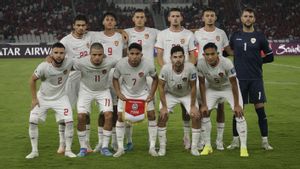JAKAKRTA - The Indonesian Ministry of Foreign Affairs spoke of the many discussions indonesia chose 'No, regarding the Resolution of Responsibility to Protect (R2P) against genocide, ethnic cleansing, war crimes and humanitarian crimes.
Indonesia's stance is related to the vote in the United Nations General Assembly (UN) yesterday. This choice made many netizens, as if Indonesia rejected the resolution of genocide and war crimes. Moreover, there is currently a Palestinian and Israeli conflict.
"It's not on its substance to reject genocide or R2P. It's procedural. If the substance, it has been clear since 2005 Indonesia supports," explained Director General of Multilateral Cooperation of the Indonesian Ministry of Foreign Affairs Febrian Alphyanto Buddyard in a virtual press statement, Thursday, May 20.
Explained by him, the most discussed is the choice of 'No' by Indonesia, without mentioning the Explanation of Vote (EoV) delivered by Indonesia in the activity.
In the EoV copy received by VOI, there are three Indonesian reasons for voting 'No' in the ballot, which is officially submitted.
First, R2P does not need to be an annual agenda in itself, because since 2009 there has been a forum for dozens of debates and reports of the UN Secretary-General.
Second, any proposition or idea that seeks to enrich the discussion of this concept should not frustrate the perimeter set forth in the 2005 World Summit Results Document Such efforts should not loosen, expand, or create creative thresholds or criteria than those specified in Resolution 60/1.
Efforts to discuss R2P should not turn the concept into something that is not the concept. Over the years, different views have taken place in this hall and the controversial application of R2P further should be more careful.

Third, Indonesia's current voting position should not be misinterpreted as opposed to R2P. Indeed, in 2005, Indonesia followed a consensus adopting the R2P concept as written in Resolution 60/1.
The principles and norms underlying R2P are familiar to Indonesia, whether they are limited to a particular group of countries or regions. In that context, strengthening the national normative prevention framework is very important.
It is reasonable to principle that the primary responsibility for protecting the population lies with the country concerned.
In fact, as Indonesia has said before, 'In our view, within and specifically within the framework of the prevention of genocide, war crimes, ethnic cleansing and crimes against humanity, that (the so-called) three pillars of R2P are sturdy enough to withstand any attack.
"The discussion container already exists, want to be made again a new container. That's what we said 'No'. Because R2P still needs more specific discussion. In 2017, Australia and Ghana requested that the R2P be on the agenda for an additional year, a promise of only a year. 2018 ask for another year, 2019 ask for another year. Only 2021 proposes a permanent agenda, it used to promise only a year. That's why we refuse, procedurally," said Febrian
But added by him, because it has been fixed by the General Assembly, Indonesia will participate with this decision. The proposal to discuss R2P became its own agenda in the UN General Assembly this time presented by the Croatian Delegation.
"Because, Indonesia does not care about this R2P. We will follow the decision that has been made," he concluded.
Previously, Foreign Ministry Spokesman Teuku Faizasyah had also said the resolution discussed more on the determination, whether this agenda will be a fixed agenda in itself, or as has been the case.
"This resolution is more about determining whether this agenda will be used as a fixed agenda or still have to be voting every year as usual at GC. Indonesia's position in accordance with the dynamics, the results of the 2005 Summit agenda R2P quite entered under the agenda follow up to the 2005 summit," faizasyah explained, to reporters.
The English, Chinese, Japanese, Arabic, and French versions are automatically generated by the AI. So there may still be inaccuracies in translating, please always see Indonesian as our main language. (system supported by DigitalSiber.id)













